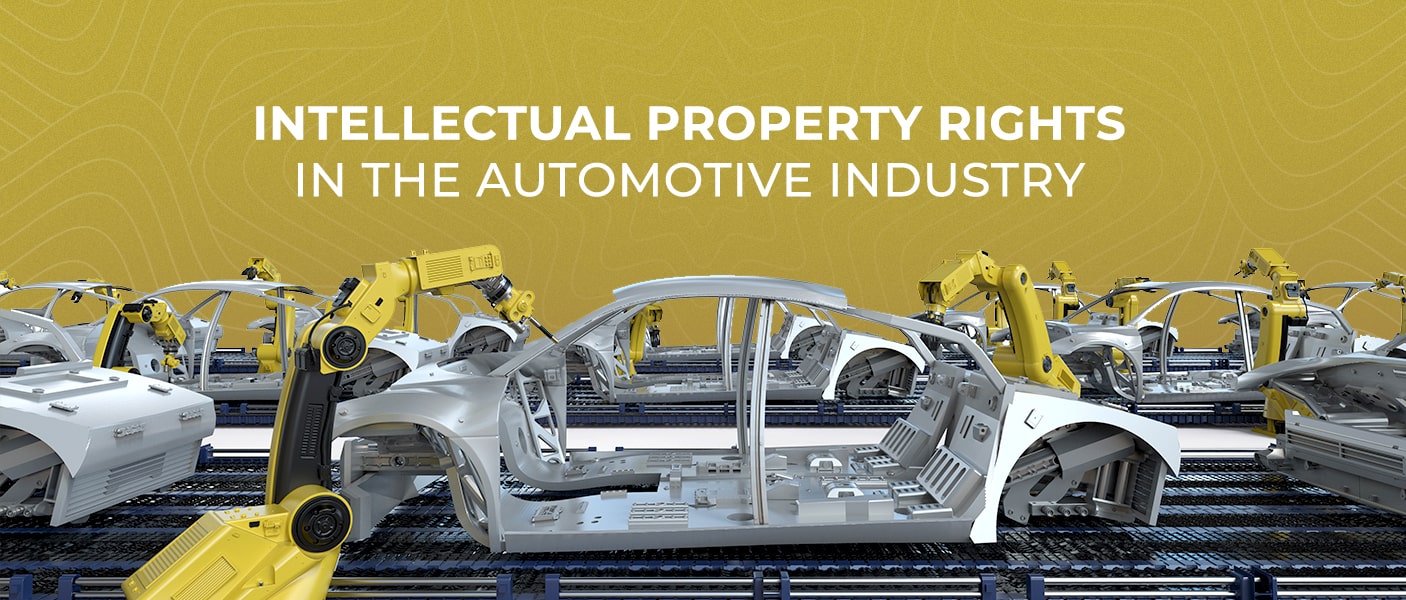Intellectual Property Rights in the Automotive Industry
December 23, 2024 By Amee ParmarThe automotive industry is one of the most innovative sectors, constantly evolving with cutting-edge technology, sustainability goals, and enhanced safety measures. From self-driving cars to electric vehicles, the industry thrives on innovation, which requires a strong framework of intellectual property protection. This is where Intellectual Property Rights for the Automotive Industry play a critical role, safeguarding creativity and ensuring a competitive edge for businesses.
In this blog, we’ll explore the significance of intellectual property rights (IPR) in the automotive sector, how they intersect with regulations like the Motor Vehicles Act, and the challenges and opportunities they present.
Understanding Intellectual Property Rights for Automotive Industry
Intellectual property rights refer to legal protections granted to creations of the mind—such as inventions, designs, and trademarks—ensuring the owner’s exclusive right to use, sell, or license their innovation. In the automotive world, these rights extend to:
- Patents for technological innovations, like electric vehicle batteries or autonomous driving systems.
- Trademarks for brand identity, including logos and slogans.
- Design for the unique look and feel of vehicles.
- Copyrights for software, user manuals, and multimedia elements.
By protecting these aspects, IPR ensures that innovators reap the benefits of their investments and fosters a culture of continuous advancement.
Intellectual Property Rights and the Motor Vehicles Act
The Motor Vehicles Act plays a pivotal role in regulating road safety, emissions, and manufacturing standards in India. While it primarily focuses on operational aspects, its provisions also intersect with IPR in key areas:
- Compliance with Safety Standards: Automakers must develop innovative designs and technologies to meet stringent safety regulations under the Motor Vehicles Act. These innovations, protected under IPR, not only ensure compliance but also enhance consumer trust.
- Emission Control Technologies: With increasing emphasis on reducing vehicle emissions, the Motor Vehicles Act mandates the adoption of eco-friendly technologies. Patents for electric drivetrains and fuel-efficient engines are instrumental in meeting these regulations while gaining a competitive edge.
- Aftermarket Parts and Counterfeiting: The Motor Vehicles Act also addresses counterfeit parts, which pose safety risks and undermine brand value. Trademarks and patents help combat this issue by protecting genuine automotive components.
Challenges in Managing Intellectual Property in the Automotive Industry
Despite its advantages, managing IPR in the automotive sector is not without challenges:
- Global Competition: The industry operates on a global scale, making it difficult to enforce IPR across different jurisdictions. Companies must navigate varying laws to ensure comprehensive protection.
- High Costs of Litigation: Protecting intellectual property often involves lengthy and costly legal battles, especially in cases of patent infringement. This can be a significant barrier for smaller firms.
- Rapid Technological Advancements: The pace of innovation in the automotive sector often outstrips the legal processes for granting patents or trademarks. This lag can expose companies to the risk of unauthorized use.
- Collaboration vs. Competition: The rise of collaborations between automakers and tech firms creates a grey area in IPR ownership. Determining who owns the rights to co-developed technologies can be complex.
Opportunities for Growth and Collaboration
- IPR-Driven Sustainability: With growing emphasis on green mobility, companies that invest in innovative solutions like hydrogen fuel cells and recyclable materials can leverage IPR to gain a first-mover advantage.
- Leveraging Data-Driven Insights: As connected cars generate massive amounts of data, automakers can use intellectual property rights to safeguard proprietary algorithms and analytics platforms.
- Strengthening Legal Frameworks: Collaborating with governments to align IPR policies with industry needs can lead to more effective protection and enforcement, encouraging innovation.
The importance of Intellectual Property Rights for the Automotive Industry cannot be overstated. They are the cornerstone of innovation, enabling companies to create, protect, and commercialize groundbreaking technologies that shape the future of mobility.
By aligning their innovations with regulations like the Motor Vehicles Act, automakers can not only meet compliance standards but also enhance their market position. While challenges exist, the opportunities for growth and collaboration far outweigh them, making IPR a vital asset in driving the automotive sector forward.
Whether it’s safeguarding groundbreaking patents or defending a brand’s reputation through trademarks, the strategic use of intellectual property rights will continue to fuel progress in this dynamic and competitive industry.





